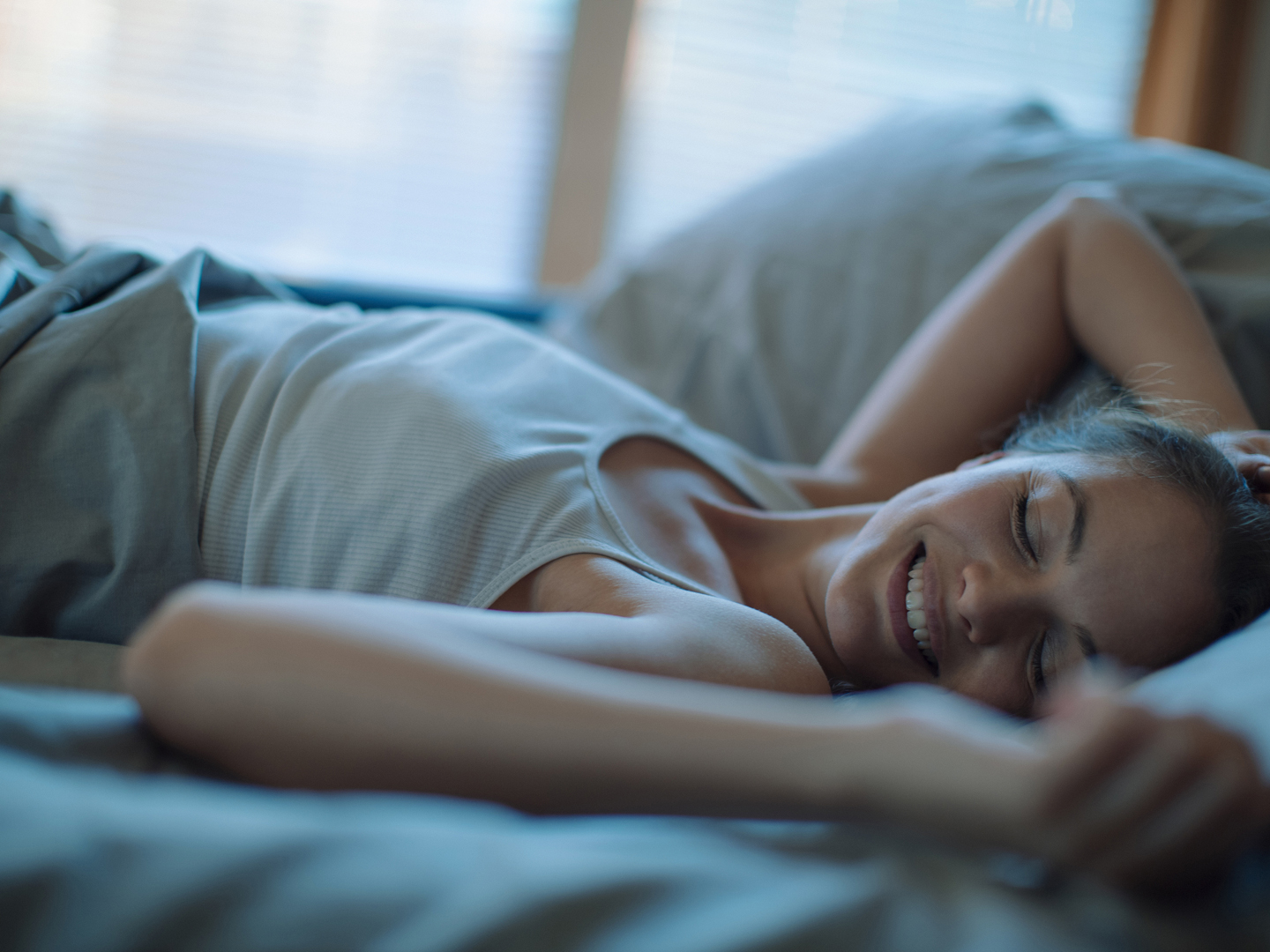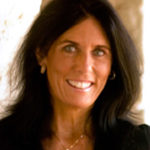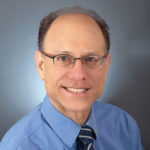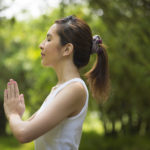An Interview with Rubin Naiman, PhD

How does sleeping and dreaming impact our health?
Sleeping and dreaming are essential, though largely overlooked dimensions of our general health. Recent research has discovered critical links between inadequate sleep and a broad range of health problems including infections such as colds and flu, obesity, cardiovascular disease, diabetes, and even cancer. Compromised sleep is known to be a critical factor in accidents ranging from ordinary motor vehicle mishaps to major disasters. Insomnia and sleep apnea also predispose us to clinical depression. In fact, a year of insomnia is the strongest known predictor of future depression.
In recovering from illness, it’s not surprising that virtually all approaches to healing call for rest and sleep. In fact, the word clinical is derived from the Greek word for bed. Obtaining quality sleep is one of the most important things we can do to promote optimal healing from illness as well as maintain good health.
Adequate sleep has likewise been linked to positive health outcomes. Deep sleep keeps us well by promoting healthy immune function. It also keeps us energized, clear-minded, and youthful. Good dreaming contributes to our psychological well-being by supporting healthy memory, warding off depression, and expanding our ordinary limited consciousness into broader, spiritual realms.
Why do so many people struggle with sleep problems?
Sleep problems are, in fact, the most prevalent health concern in the industrialized world today. Over 100 million American adults suffer from various sleep and dream related conditions. Although important strides are being made in understanding sleep from a scientific and medical standpoint, I believe one major reason we continue to struggle is because we have failed to acknowledge the bigger picture of sleep. Essentially, we have lost our regard for the critical role of night – the influence of dusk and darkness upon rest, sleep, and dreams.
Over the past century, our nights have grown dramatically shorter. A culture of relentless industrialization has polluted the night environment with excessive, almost metastatic artificial illumination. This encourages us to extend a daytime, active frame of mind deep into our nights. And, blinded by this light, we have lost touch with the naturally restful influence of dusk and the sleep prompting influence of darkness.
In contrast to light, which energizes us, dusk literally slows us down, inviting us inward–away from the world, and encouraging us to let go of the day and waking. In nature, dusk would offer us a gradual bridge to sleep. It insists that we rest. The vast majority of us, however, indulge in artificial daylight until we turn off the last lamp on our bed stand. To promote better sleep, I routinely recommend “dusk simulation”- significantly dimming the lights around one’s home for about one hour prior to bedtime. I believe that rest is essentially a low-grade form of sleep; it is nature’s gateway to sleep. Maintaining a dark bedroom throughout the night is also essential for healthy sleep.
How do I know if I’m getting adequate sleep?
The amount of sleep needed varies from person to person as well as with changing conditions in one’s life. The majority of us simply do not get adequate sleep. In fact, Americans have lost about 20% of their nightly sleep time over the past century. Consequently, as a nation, we have accumulated a sleep debt that rivals our national debt. And like financial debt, sleep debt places constraints on the quality of our lives and, eventually, will need to be paid off.
It is important to understand that adequate sleep cannot be defined simply in terms of the numbers of hours one sleeps. It is must also reflect the depth and quality of that sleep. Many people who believe they are obtaining the right amount of sleep are unknowingly getting poor quality sleep. This is most evident, for example, among people with untreated sleep apnea who, despite believing they are sleeping through the night, actually experience dozens of nightly disruptions to their sleep that they remain unaware of.
The best measure of whether we are obtaining adequate sleep is our level of daytime energy, or, conversely, our level of daytime sleepiness. Generally, our energy level should remain fairly steady throughout the day. (Minor fluctuations in energy, including a tendency to nap in the mid-afternoon, are perfectly normal.) Unfortunately, millions of us habitually mask our excessive daytime sleepiness through dependence upon what I call “counterfeit energies”- those jittery energies derived from excessive caffeine, highly refined sugars, and drama-induced adrenaline.
Is there a secret to a good night’s sleep?
Yes, and no. If by “secret” you are referring to a magic bullet type of solution to sleep problems, I would say absolutely not. In fact, the common tendency to approach complex sleep problems with overly simplistic solutions only worsens the situation. This kind of misguided thinking fuels our culture’s perennial quest for the perfect sleeping pill.
There are no quick fixes simply because most sleep problems are essentially lifestyle issues. They are inextricably tied to our psychological, nutritional, exercise, and even spiritual health patterns. If there was a secret of a good night’s sleep, it would simply be a good day’s waking.
Beyond reasonable health practices, a good day’s waking is also about a certain joie de vive, a deep sense of passion, aliveness, and natural energy. Unfortunately, in addition to being sleep deprived, many of us are also unknowingly wake deprived. I believe our natural vitality is compromised, in large part, because we get limited exposure to natural light.
Just as we are underexposed to darkness by night, we get insufficient light by day, particularly in the morning. Most of us spend the bulk of our waking hours indoors in what is relatively dampened light. Healthy levels of light naturally energize us, drawing us outward into the world. Healthy patterns of light exposure also help us maintain normal circadian cycles.
Our limited exposure to natural light and darkness is symptomatic of our disconnection from the fundamental life rhythm of day and night, from our circadian rhythms. By disconnecting or disentraining from these natural rhythms, we have overridden and damaged our internal clocks. We need to address this imbalance in our lives to more effectively heal and also prevent sleep problems.
What are your thoughts about sleeping pills and aids?
Conventional medicine attempts to compensate for the imbalance in our circadian rhythms primarily through the use of medication. We are offered sleeping pills to compensate for our loss of dusk and darkness. And, we are now being offered a whole new class of drugs – “waking pills”- to compensate for our insufficient daytime energies. Unfortunately, although these medications might offer us a temporary fix, routinely using them to compensate for the loss of natural rhythms simply exacerbates the problem.
The regular use of sleeping pills is known to impair health as well as waking consciousness. Sleeping pills, both prescription and over the counter varieties, can damage our own natural ability to fall and stay asleep. They diminish our sleep quality, constrain dreaming, foster dependence, and often result in rebound insomnias after discontinuation. Most prescription sleep medications are also insensitive to the body’s natural rhythms.
A number of alternative sleep aids have proven to be effective without the negative side effects of prescription sleeping pills. Melatonin and valerian are examples of two such aids that can be used in harmony with the body’s own natural rhythms. Unfortunately, because these substances cannot be patented, they do not offer drug companies the profit incentive of more expensive prescription sleep medications and, therefore, are not marketed as vigorously.
Ultimately, I believe that dusk, darkness, dawn, and daylight are the best sleep and waking medicines. Beyond energizing and inviting us back into the outer world, morning light stimulates the production of serotonin. And, in addition to directly encouraging rest and sleep, dusk and darkness also stimulate melatonin production.
There is widespread resistance, however, to consciously transitioning through dusk and into darkness. I believe that, even among adults, this reflects a deep, underlying fear of darkness. Because night naturally encourages us to face our personal darkness, what Jungian psychologists refer to as “shadow,” it presents unique possibilities for personal healing. And this opens the door to the largely ignored psychospiritual aspects of sleeping and dreaming.
What do you mean by the “psychospiritual aspects of sleeping and dreaming”?
In trying to heal our sleep, we focus too tightly on the complex, mechanistic details of sleep health, losing sight of the forest for the trees. Sleep and dreams cannot be reduced to squiggly EEG tracings and the complex cascade of bodily humors. There is a lovely, sacred and mythic dimension to our nighttime consciousness that must be restored if we are to achieve optimal health.
This sacred perspective requires that we come to terms with our fear of both literal and figurative darkness; that we learn to balance darkness and light, night, and day, or the feminine and masculine energies of life. Dr. Weil first addressed this notion many years ago in his beautiful book, The Marriage of the Sun and Moon. I believe the message of this book is most germane to sleep medicine today.
In seeking this essential balance, we discover important psychospiritual lessons in sleep and dreamwork. Beyond all the psychological and biological complexities associated with it, we come to see that falling asleep is an act of faith. It is about the fundamental spiritual practice of surrender or letting go. We learn that sleep itself is a spiritual path – a profound nightly lesson in accessing deep serenity. And, we are reminded that dreaming is the means by which we allow our very consciousness to breathe; to expand and heal.
Can you tell us about the work you are currently doing in sleep medicine?
My primary professional interest is in the development and promotion of an integrative approach to sleep and dream health.
As the sleep specialist in Dr. Weil’s Arizona Center for Integrative Medicine at the University of Arizona, I provide training and supervision to post-doctoral fellows, residents, and medical students in integrative sleep and dream medicine. I also offer training to other health care providers including physicians, nurses, psychologists, and psychotherapists around the country.
As a part of my effort to raise consciousness about integrative sleep and dream medicine, I have published a book entitled Healing Night: the Science and Spirit of Sleeping, Dreaming, and Awakening. My hope is that this work will lay the foundation for a new approach to sleeping and dreaming, one that carefully balances science with spirituality.
I also maintain a private practice with a specialization in clinical health psychology and behavioral sleep and dream medicine. In addition to ongoing psychotherapy, I offer short-term sleep health consultations, primarily by telephone, to people around the U.S. and elsewhere.
Finally, in response to the tremendous shortage of sleep doctors as well as the limited approach to sleep medicine commonly practiced today, I have devoted much of my time over recent years to the development of a unique sleep software program. “The Sleep Advisor: Help for Your Sleep Problems” is a user-friendly expert system for consumers designed to evaluate and offer recommendations for addressing major sleep concerns.









